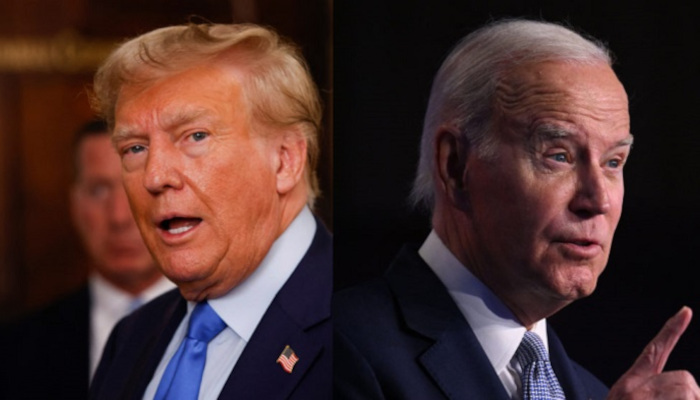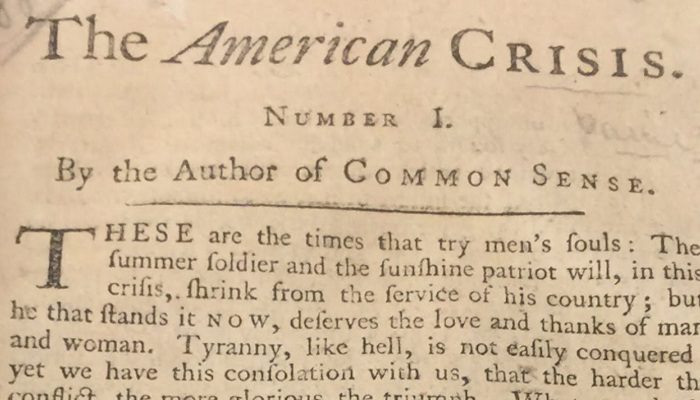
Trump’s whirlwind of executive orders was a skillful staging of his rhetoric’s emotional and communicative efficiency. Above all, two topics touch the fabric of the Nation: citizenship and immigration. The United States has also been built on the strength (skilled or unskilled) of immigrants.
Since immigration intersects with foreign politics, diplomacy, and national security, many Supreme Court rulings give the President broad discretion in managing migratory phenomena and designing control policies. The discretion was typically used in the past to keep in check migrants’ entry into the country – with measures ranging from annual quotas to the exclusion of people from certain areas.
Nevertheless, the discretion granted by the Supreme Court to the executive power does not mean a blank check. Congress, first, and then citizens, can play their role in keeping the executive power under scrutiny in immigration matters.
Citizenship
Legally, limiting the implementation of ius soli in granting citizenship to those born in the United States is far more sensitive, because it is a constitutional matter anchored in the 14th Amendment (1868). Its first section states that «all persons born or naturalized in the United States, and subject to the jurisdiction thereof, are citizens of the United States and of the State wherein they reside. No State shall make or enforce any law which shall abridge the privileges or immunities of citizens of the United States; nor shall any State deprive any person of life, liberty, or property, without due process of law; nor deny to any person within its jurisdiction the equal protection of the laws».
The constitutional plausibility of Trump’s executive order on this matter is tied to how the conjunction «and» is interpreted. Since the late 19th Century, the Supreme Court has consistently applied an explanatory interpretation – being born in the United States means, ipso facto, being under its jurisdiction. The executive order challenges such legal tradition as it considers the conjunction «and» an additional clause. Being born in the US is not enough to be a citizen: at the moment of birth in the US, one must hold the legal status of being under the jurisdiction thereof – which, in the case of undocumented immigrants’ children, would not apply.
As of today, given the consistency of the Supreme Court’s rulings, the chances that the citizenship executive order signed by Trump could find a majority support among the Justices are slim, if not nil. But the new US administration is well aware of it. Paradoxically, such an executive order does not aim to achieve short-term effects, but rather to cast a long-term shadow over an established constitutional practice. Doing so, the possibility of a narrower understanding of ius soli enters the public debate, occupies people’s minds, and may shape the conditions for an interpretation change of the 14th Amendment even within the Supreme Court.
Change that will have to be fostered by an ad hoc selection of the next justices of the Court itself. The power of nominating Justices belongs to the constitutional prerogatives granted to the US President – but such executive power is tied to the legislative one vested in the Senate, which has to give its «advice and consent».
The point where the three separated powers touch with each other is critical not just for the system of checks and balance or the independence of the judiciary but also, above all, for safeguarding the democratic order of the country. It is not so much about the politicization of the Supreme Court – given the subjects involved, every Justice’s appointment is a political act. More fundamentally, it is about an increasingly evident “allergy” to the limitation of executive power by the judiciary. When, in the Justices’ appointment, this intersection of powers becomes functional to implement a political agenda, then the balance of checks could be off.
Immigration: Trump’s Administration vs. Catholic Church
The Catholic Church’s critical reaction to Trump’s repressive policies in the matter of undocumented immigrants came soon. On Jan. 22, the President of the US Conference of Catholics Bishops (USCCB), Msgr. T. Broglio, stated that some executive orders, including those related to immigration, «are deeply troubling and will have negative consequences, many of which will harm the most vulnerable among us».
The chairman of the USCCB Committee on Migration, Msgr. M. Seitz, bishop of El Paso, while recognizing a country’s right to protect public order and security, said that Catholic bishops «cannot abide injustice, and we stress that national self-interest does not justify policies with consequences that are contrary to the moral law (…). The use of sweeping generalizations to denigrate any group, such as describing all undocumented immigrants as ‘criminals’ or ‘invaders,’ to deprive them of protection under the law, is an affront to God, who has created each of us in his own image».
Trump’s Administration retort was also not long in coming. On Jan. 26, in an interview where he presented himself as a «devout Catholic», Vice President J.D. Vance questioned the ultimate reason for the stance taken by the bishops of his Church. According to Vance, the concern expressed by the Catholic bishops would not be motivated by humanitarian reasons but by money: «I think that the US Conference of Catholic Bishops needs to actually look in the mirror a little bit and recognize that when they receive over $100 million to help resettle illegal immigrants, are they worried about humanitarian concerns? Or are they actually worried about their bottom line?» – said Vance.
The statement appeared denigratory to many Catholics. Vance had said: «I think the US Conference of Catholic Bishops has, frankly, not been the good partner in common sense immigration enforcement that the American people voted for, and I hope, again, as a devout Catholic, that they’ll do better».
Vance’s devout expectations are apparently intended to push for an unmitigated and silent alignment of the bishops with the policies of the Trump Administration. Expectations rebutted by the archbishop of New York, card. T. Dolan, who delivered the invocation at Trump’s inauguration. After Vance’s interview, Dolan said: «I was really disappointed with what he [Vice President Vance] said on ‘Face the Nation’ the other day. And I don’t mind telling you, somewhat hurt. This was not only harmful, this was inaccurate. You heard what he said: ‘Oh, the bishops, they’re pro-immigrant because of the bottom line, because they’re making money off this.’ That’s just scurrilous. It’s very nasty, and it’s not true».
A compliant, partisan Catholic Church would not serve the common good of the Nation. Instead, every administration needs a Church that can constructively articulate its public stance – also when it is critical toward some policies carried on by the country’s executive power. Such ability belongs to the newly appointed archbishop of Washington, card. R. McElroy, whose mandate is twofold: to work on building cooperation with the Trump Administration, which does not to have either submissive or antithetical; to assure the American people (and the Government) that the constitutional framework of democracy lies at the heart of pope Francis pastoral care for the United States.
A constructive and stimulating relationship with the Holy See would be advantageous to the Trump Administration, whose foreign politics are unclear in terms of its goals and strategies. It would signal a search for stability and long-term planning of the American Government. America and the Holy See are the only two actual global players remaining on the stage of the world order, and they should try to work out their divergences without escalating them – this, for the sake of a world that is reaching a chaotic point of no return.
Trump’s rhetoric and its costs
S. Sawyer, editor-in-chief of the Jesuit magazine America, has posed the political question of how to confront effectively Trump’s common-sense rhetoric. The President’s proclaiming style asserts that «there are obvious, common-sense answers to all the problems that plague America. Solutions will happen immediately, powered by renewed belief in American exceptionalism, leading us to “win like never before” under Mr. Trump’s leadership. And even when things may be challenging or require effort, they are never complicated. Nor did he acknowledge that his policies might have any risks or impose any costs» on the American citizens.
Imposing tariffs means raising the price of imported goods – a cost that will fall on the American consumer-citizens. The domestic use of the military, the real fault line with previous policies of the Nation, not only calls for diverting troops from areas of strategic interest to the United States, but it also involves finding funds to deploy military forces in such an unusual way.
The narrower interpretation of ius soli about children of undocumented immigrants, implied in the executive order signed by Trump, risks churning out many stateless people with no citizenship rights in any country – not even that of the parents if in that country, for instance in Mexico, citizenship is based on the place of birth and not on ius sanguinis. Children of Mexican parents, illegally migrated in the US, would have neither US nor Mexican citizenship, therefore it’s unclear where they could be deported to.
One of illegal immigration’s main drivers is that undocumented people can easily find employment in the United States: they are paid less, and they do not enjoy the already meager protections regular workers could count on. Therefore, illegal immigration should be tackled not only through mass deportation but also by cutting the roots of (illegal) job offers that attract them into the country – something that President Trump doesn’t seem keen on doing.
The dream of total deportation of undocumented immigrants (about 11 million) would bring the US food industry to its knees – a fate that would be shared by groceries, restaurants, construction, and other services (perhaps also hospitals). Total deportation would mean an explosion of inflation, especially with the prices of necessities, which would be paid again by Americans.
Behind Trump’s rhetoric of common sense lies an immense untold that will shatter the already precarious existence of American vulnerable and poor people. That said, it remains the fact that such rhetoric is a winning one – at least as an electoral and consensus-building tool. Rhetoric that is difficult to counter properly because exposing the untold only fuels its strategy of obviousness and oversimplification (for everything, there is always somebody else to blame; and if you always have someone to be blamed, you do not need to address the roots of the problems). Rhetoric to win the election is one thing, but the politics to rule the Nation is quite another.
There is one more consequence related to Trump’s winning rhetoric – much more crucial because it affects the very architecture of democratic order.
Such rhetoric might make the need for consistent argumentation, due learning process, or long-term strategy irrelevant. The risk to the extinction of democracy starts right here: when the citizenry takes sides against the other without feeling the duty to give well-founded reasons for their opinions or persuasions.
In this way, it is the civil passion for the common good, which unites the majority and minority, that is getting lost. And with it, the strenuous adventure of democracy that Americans dared to experiment with as the soul of the Nation.










Who Can Trump American Catholics? - SettimanaNews
It’s unwise for Americans to ignore questions about tax funding for US Catholic organizations. President. thomas Jefferson warned, in every age, in every country, the priest aligns with the despot. McConahey, in the book,Playing God, confirms the quote’s truth in the US experience with recent Republicans.
Through usurpation of government function, paid for with taxes, Catholic organizations have become the US’ 3rd largest employer.
How Catholic politicians get tax money is explained in the schemes described by ProPublica, “On a mission from God: inside the movement to redirect billions in taxpayer dollars to religious schools,” Jan. 13, 2025. State legislatures exempt the religious schools from accountability. The Catholic majority on the US Supreme Court exempted religious schools from civil rights employment law.
In early 2025, President Donald Trump issued Executive Order 14160, titled “Protecting the Meaning and Value of American Citizenship,” aiming to end birthright citizenship for children born in the U.S. to non-citizen parents. This action has sparked significant debate, particularly within the American Catholic community.
The U.S. Conference of Catholic Bishops (USCCB) has been vocal in its opposition to the executive order. Prominent Catholic leaders, including Cardinals Blase Cupich, Joseph Tobin, and Robert McElroy, have criticized the policy, stating it contradicts the Church’s teachings on human dignity and the rights of immigrants. They argue that denying citizenship based on parental status undermines the nation’s moral and constitutional foundations.
Despite the administration’s stance, the Catholic Church continues to advocate for the rights of all individuals, emphasizing the importance of compassion and justice in immigration policies. The ongoing legal challenges and public discourse highlight the complex intersection of faith, law, and politics in contemporary America.